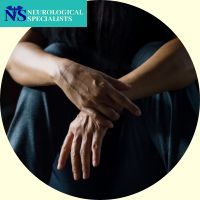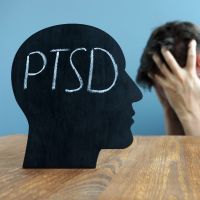PTSD Treatment Near Me
Navigating Trauma: A Neurologist’s Approach to Healing PTSD
Trauma can have profound effects on the brain and the body, often resulting in conditions such as Post-Traumatic Stress Disorder (PTSD). As neurological specialists, we understand the intricate relationship between trauma and the nervous system, and we are committed to providing comprehensive care to individuals seeking relief from its burdens. In this blog, we explore how a neurologist can play a pivotal role in healing trauma and managing PTSD. If you’re searching for PTSD treatment near me, know that you’re not alone, and we are available.
 Understanding Trauma and PTSD
Understanding Trauma and PTSD
Trauma refers to a distressing or disturbing event that overwhelms an individual’s ability to cope, leaving a lasting impact on their mental and emotional well-being. PTSD is a mental health condition that can develop after experiencing or witnessing a traumatic event. Common symptoms of PTSD include flashbacks, nightmares, intrusive thoughts, hypervigilance, and avoidance of triggers related to the trauma.
Neurologists are uniquely positioned to address the neurological aspects of trauma and PTSD, offering specialized expertise in understanding and treating conditions that affect the brain and nervous system.
Comprehensive Evaluation
A neurologist can conduct a thorough evaluation to assess the impact of trauma on the brain and nervous system. This may involve neurological examinations, imaging studies, and psychological assessments to understand the underlying mechanisms contributing to PTSD symptoms.
Neurologists can prescribe medications to help alleviate symptoms of PTSD, such as antidepressants, anti-anxiety drugs, or medications targeting specific neurological pathways involved in stress response and emotional regulation.
Psychotherapy Integration
Collaborating with mental health professionals, neurologists can integrate psychotherapy techniques into treatment plans to address the cognitive and emotional aspects of PTSD. This may include cognitive-behavioral therapy (CBT), eye movement desensitization and reprocessing (EMDR), or other evidence-based therapies tailored to the individual’s needs.
Lifestyle Modifications
Neurologists can guide lifestyle modifications that support overall brain health and resilience in managing PTSD. This may include recommendations for exercise, nutrition, sleep hygiene, stress management techniques, and relaxation exercises.
Holistic Care Coordination
By coordinating care with other healthcare providers, including psychologists, psychiatrists, primary care physicians, and social workers, neurologists can ensure that individuals receive comprehensive and integrated treatment for PTSD. This multidisciplinary approach addresses the complex interplay of biological, psychological, and social factors underlying trauma and its aftermath.
Navigating PTSD Treatment Near Me
If you’re seeking PTSD treatment near me, it’s essential to find a neurologist or healthcare provider who specializes in trauma-informed care and understands the unique needs of individuals with PTSD. Here are some steps to help you navigate the process:
Look for neurologists or medical practices in your area that offer PTSD treatment services. When selecting a provider, consider experience, expertise, and patient reviews.
Ask your primary care physician, mental health professional, or trusted friends and family members for recommendations for neurologists who specialize in trauma and PTSD treatment.
Schedule Consultations
Once you’ve identified potential providers, schedule consultations to discuss your needs and treatment goals, during these appointments, inquire about their approach to PTSD treatment, available services, and any questions or concerns you may have.
Choose a neurologist who takes a collaborative approach to treatment, involving you as an active participant in decision-making and tailoring treatment plans to your individual needs and preferences.
Conclusion
Healing from trauma and managing PTSD is a journey that requires patience, compassion, and comprehensive care. As neurological specialists, we are committed to supporting individuals on this path, providing evidence-based interventions, and empowering them to reclaim their lives. If you’re ready to take the next step toward healing, reach out to a neurologist who specializes in PTSD treatment near you. You don’t have to face this journey alone; help is available.
Click Here to Schedule an Appointment!
PTSD Treatment After a Severe Car Accident
A severe car accident can leave lasting physical, emotional, and psychological scars, including Post-Traumatic Stress Disorder (PTSD). As neurological specialists, we understand the complex interplay between trauma and the nervous system and are committed to providing comprehensive care to individuals navigating PTSD after a traumatic car accident. If you’re seeking PTSD treatment near me following a severe car accident, know that specialized care from a neurologist can make a difference in your recovery journey. Visit our website to learn more!
Understanding PTSD After a Severe Car Accident
Car accidents can result in life-threatening injuries, significant physical trauma, and emotional distress, all of which can contribute to the development of PTSD. Symptoms of PTSD after a severe car accident may include flashbacks, nightmares, anxiety, depression, avoidance of driving, or reminders of the accident.
Neurological Specialists are uniquely positioned to address the neurological aspects of PTSD and provide tailored treatment approaches for individuals recovering from a severe car accident. Here’s how neurologists can help:
- Neurological Assessment

Following a severe car accident, a neurological assessment can help identify any traumatic brain injuries or neurological complications that may contribute to PTSD symptoms. Neurologists can conduct thorough evaluations, including imaging studies and neurocognitive assessments, to guide treatment planning.
- Medication Management
Neurologists may prescribe medications to alleviate symptoms of PTSD, such as antidepressants, anti-anxiety drugs, or medications targeting specific neurological pathways involved in stress response and emotional regulation. These medications can help individuals manage anxiety, depression, and sleep disturbances.
- Neurofeedback Therapy
Neurologists may recommend neurofeedback therapy as a non-invasive treatment option for PTSD after a severe car accident. This therapy involves monitoring brainwave activity and providing real-time feedback to help individuals learn to regulate their brain function and reduce symptoms of PTSD.
- Trauma-Informed Care
Neurological specialists approach PTSD treatment with sensitivity to the trauma experienced by individuals after a severe car accident. They provide compassionate and supportive care, helping individuals feel heard, validated, and empowered in their recovery journey.
If you’re seeking PTSD treatment near me following a severe car accident, it’s essential to find a neurologist who specializes in trauma-informed care and understands the unique needs of individuals recovering from trauma.
Conclusion
Recovering from PTSD after a severe car accident is a challenging journey, but with specialized care and support from neurological specialists, healing is possible. If you’re ready to take the first step toward managing PTSD and reclaiming your life after a severe car accident, reach out to a neurologist who specializes in PTSD treatment near you. With compassionate care and evidence-based interventions, you can overcome trauma and thrive once again. Visit our website today!
